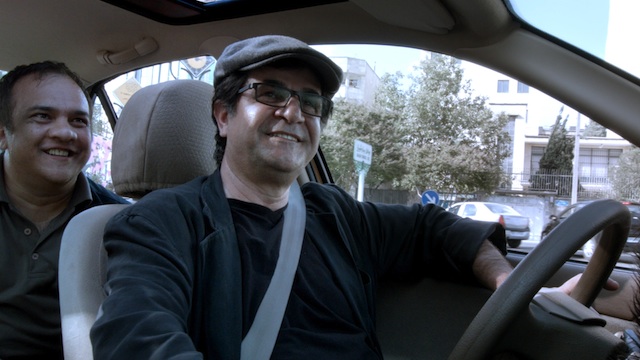‘Jafar Panahi’s Taxi’ Jafar Panahi was arrested in 2009 for attempting to make a documentary critical of Mahmoud Ahmadinejad, placed under house arrest then slapped with a 20-year ban from filmmaking. Now comes “Taxi,” the third film he’s made on the sly then slipped out of the country, though claims that the first, 2011’s “This is Not a Film,” was smuggled in a birthday cake appear to have been a joke. That strange mix — oppression and utter despair mixed with a puckish sense of humor — is all over these films, and especially in “Taxi,” which finds Panahi able to move from his apartment, the setting for both “Film” and 2013’s “Closed Curtain,” and drive around Tehran. He reveals himself to be a pretty terrible cabbie, picking up customers and using them more to show the hardships faced in their country than smoothly get them to their destinations. RELATED: “The Keeping Room” is a feminist Western that delivers the Western goods Originally those hires were to be real — sort of Jafar Panahi’s “Taxicab Confessions” — but upon realizing a covertly made movie critical of Iran could endanger regular folks, he switched to non-pros improvising off a loose script. “Taxi” looks like a documentary — and was filmed with pocket cameras dotted all over the inside — but the cover’s blown soon as his second pick-up recognizes Panahi and even quotes the final line to his 2003 great “Crimson Gold.” Also conveniently, each fare represents a different ill in Iranian society, from the minor (a black market devoted to DVDs; Panahi’s previous rentals include “Once Upon a Time in Anatolia” and “Midnight in Paris”) to the major. The big centerpiece is when Panahi picks up a man who has just suffered a possibly fatal bike accident. Cradled in his screaming wife’s arms, he asks for someone to video his last will, otherwise she’ll wind up with nothing. That makes “Taxi” sound more didactic than it is, but even at its most direct and on-the-nose it remains playful, even goofy, albeit mixed with barely simmering anger. That some pickups know and can cite his work — while reminding him that he’s been reduced to making movies set entirely inside apartments and vehicles — becomes a running gag: his own problems reflected back to him no matter where he goes. We’re supposed to take it both as a lark — the best Panahi can do under these unimaginably restrictive circumstances — and as a master casually tossing off a “lesser” work that seems more rich the more you look at it.
Director: Jafar Panahi
Stars: Jafar Panahi, an anonymous cast
Rating: NR
3 (out of 5) Globes
‘Jafar Panahi’s Taxi’ is another playful/anguished film from the persecuted director

Submitted photo
Follow Matt Prigge on Twitter @mattprigge
















